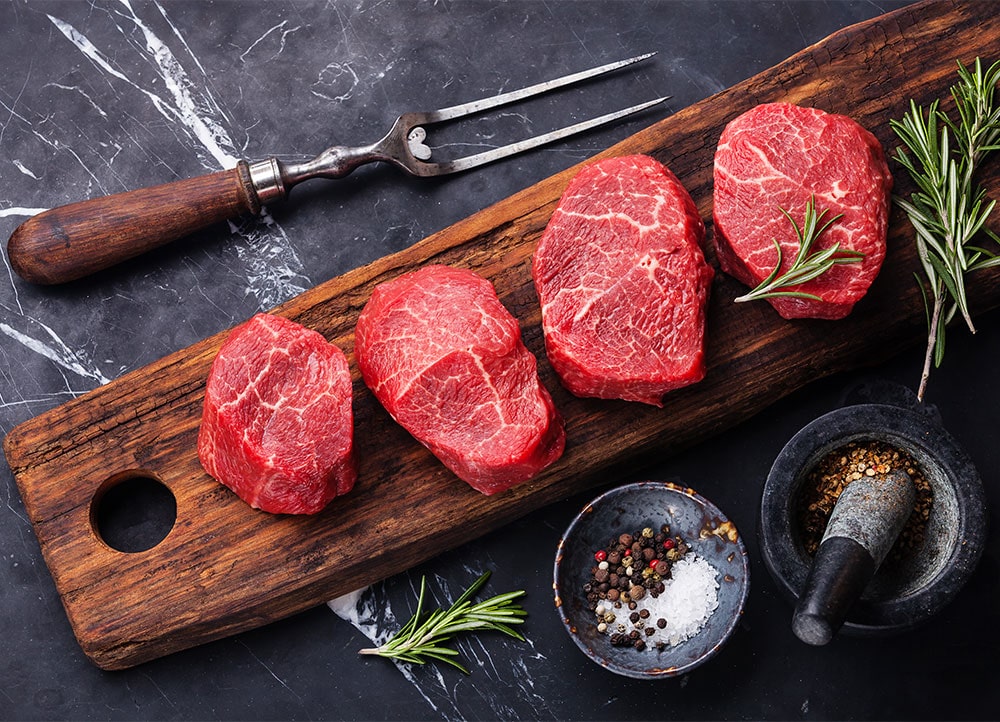What’s the Link Between Red Meat and Colon Cancer?
It’s sad but true – your favorite types of red meat could increase your risk of cancer.
Request AppointmentIt’s sad but true – your favorite types of red meat could increase your risk of cancer.
Request Appointment
The link between our dietary choices and overall health is undeniable, so much so that it’s often to blame when we face ailments. The association between red meat and colon cancer is particularly strong. Scientific evidence from a global perspective suggests that high consumption of red meat and processed meat causes cancer.
Are you wondering whether it’s finally time to cut back on the steak? Let’s dive into the evidence that could incriminate some of your favorite foods.
Two of the most well-regarded studies on the topic were conducted in 2005 by researchers in Europe and the United States. The results suggested a substantial increase in cancer risk in the lower colon and rectum – as high as three times for those who eat up to 5 ounces of red meat a day. Since then, many other epidemiological studies have followed with supporting evidence, which ultimately led to a 2015 meta-analysis. This concluded that eating red meat increases colorectal cancer risk by as much as 20-30%.
In 2015, the World Health Organization (WHO) officially reported that processed meat – such as bacon, ham, and salami – is carcinogenic to humans. Additionally, they concluded that eating beef, veal, pork, and other red meat is probably carcinogenic to humans. To better understand the difference between the two, it’s easiest to remember that processed meat has preservatives through salting, fermentation, curing, or other modifications designed to increase shelf life.
The WHO report followed a meta-analysis by the International Agency for Research on Cancer (IARC) of over 800 studies, which proved ties between red meat consumption and increased risk of colorectal cancer and prostate cancer. In addition, data also showed strong evidence between processed meat and a higher risk of stomach cancer.
Experts have long suggested that the meat curing process (e.g., adding nitrates or nitrites) can lead to cancer-causing chemicals such as N-nitroso-compounds (NOC) and polycyclic aromatic hydrocarbons (PAH). Also, meat itself contains heme iron which also contributes to the production of NOCs. Heterocyclic amines (HCAs), which are also produced when grilling or cooking at high temperatures, may also contribute to the formation of carcinogens.
While red meat does contain essential nutrients such as protein, minerals, and vitamins, its ties to various forms of cancer, heart disease, obesity, diabetes, and other chronic conditions may have you thinking twice. However, it’s vital to note that everyone’s dietary needs vary greatly, so you should consult with a doctor before omitting a food group entirely. Hardly will a certain food group be a sole risk factor. Cancer prevention is much more than monitoring your intake of red meat; it also involves keeping caloric intake reasonable, engaging in regular physical activity, avoiding tobacco, and limiting alcohol consumption.
Understanding dietary needs is an integral part of staying healthy. Are you considering what foods to add or omit into your diet? Supro Direct provides counseling on nutritional modifications in Greenwood, IN, and weight loss counseling and behavior. If you want to take control of your health, let our primary care team step in. Schedule an appointment to get on track to a healthier lifestyle!
Required fields*